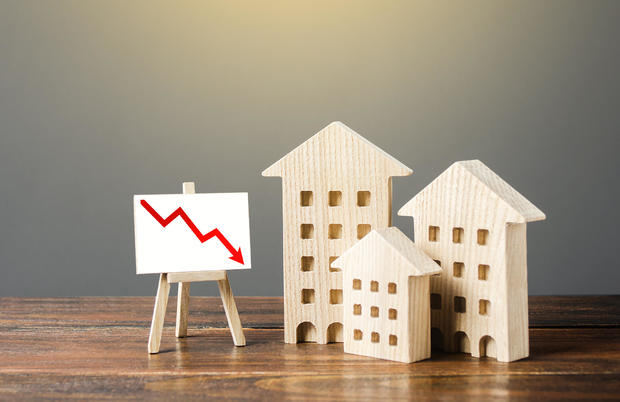Should you borrow your home equity before a recession?
The Fed's recent prediction of an impending recession has many people worried about how to shore up their finances. After years of economic woes like persistent inflation and interest rate hikes, money may already be tight. A recession could leave you scrambling to come up with the funds for necessary expenses.
If you're a homeowner, you have a unique resource to turn to: your home equity. Home equity is how much value you've built in your home, which you can pull via products like home equity loans and home equity lines of credit (HELOCs) for any number of purposes.
If you've been considering tapping into your home equity, now may be the right time to do so. In this article, we'll examine why you may not want to wait until a recession is upon us.
Begin exploring your home equity options by checking out current interest rates here.
Why you should borrow from your home equity before a recession
With a recession on the horizon, a home equity loan or HELOC may be worth exploring. Here are three reasons why.
Your home value may decrease
Your home equity amount is based on how much you've paid toward your mortgage and how much your home is worth.
For example, say you took out a mortgage for $400,000 and have paid off $100,000, lowering your outstanding balance to $300,000. If your home has appreciated to $500,000, your home equity would be $200,000 ($500,000 minus $200,000). The higher your home's current value, the more equity you have and vice versa.
Home values tend to fall in a recession, which would leave you with less equity to draw from. Applying for a home equity loan or HELOC now means you could get the most equity out of your home, securing more money should you need it in a recession.
View home equity rates here to see how much you might be eligible to borrow.
Banks may be less likely to lend to you
In a recession, interest rates tend to go down, so banks earn less from the money they lend. Borrowers are also more likely to default due to losing their jobs. As a result, banks tighten their lending criteria.
That means you may be less likely to be approved for a home equity loan or HELOC. And if you are, you may not be approved for as much. Applying now can increase your chances of approval and get you better rates and terms than if a recession hits.
It could help you get through financial difficulties
Recessions bring higher unemployment and lower purchasing power. If you lose your job or have trouble stretching your money, you may find yourself looking for ways to make ends meet. Traditional funding sources like credit cards and personal loans carry high interest rates, costing you more in the long run. Home equity financing options typically have lower rates.
For example, current credit card interest rates average 20.22%. Personal loan rates average 10.82%, but if you look at individual loan offerings, the highest APRs hover around a whopping 36%. Home equity rates, by contrast, are closer to 8%.
A HELOC can be especially helpful to secure before a recession because you borrow as much as you need from the line of credit as you need it. You only pay interest on the amount you borrow, not the total credit line limit. With a home equity loan, by contrast, you receive a lump sum and must begin paying back the full amount immediately.
The bottom line
If you've been thinking about accessing your home equity, it may be wise to do so before a recession limits your options. A home equity loan or HELOC can help you get through the financial troubles the recession brings without resorting to high-interest financing options like credit cards or personal loans.




